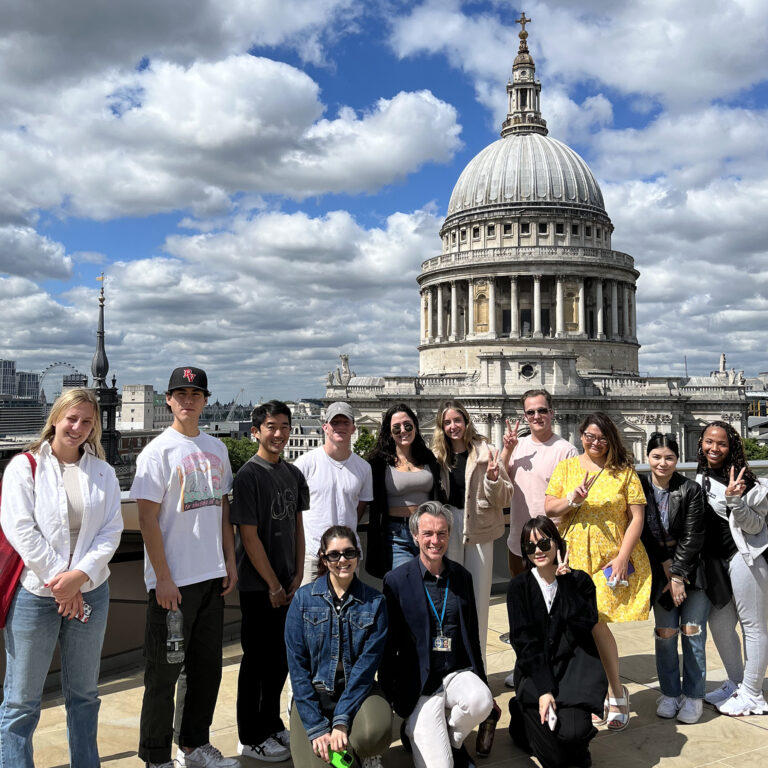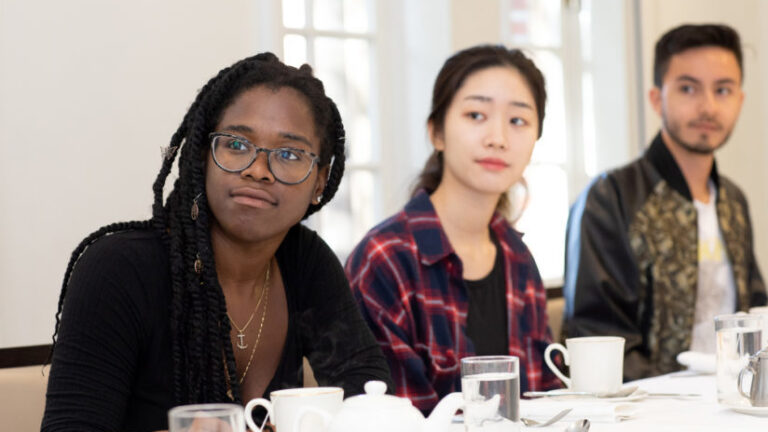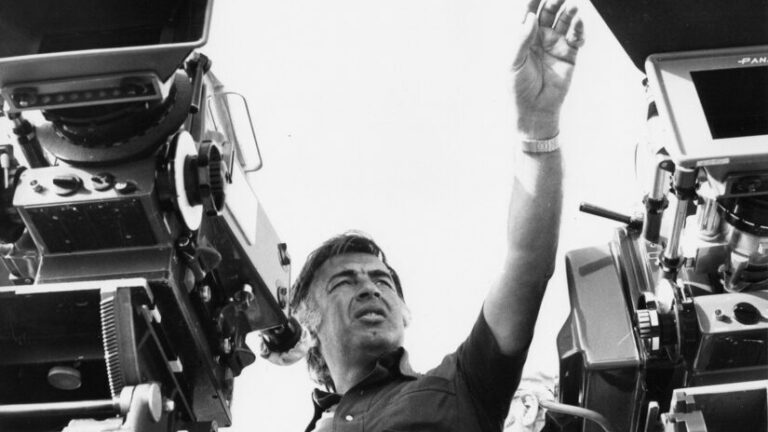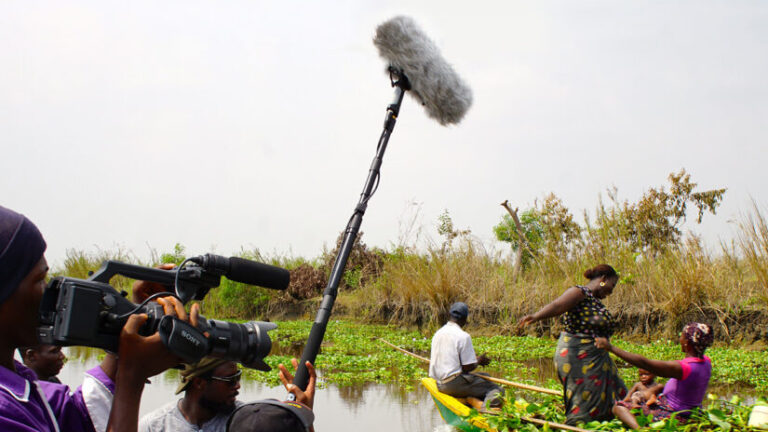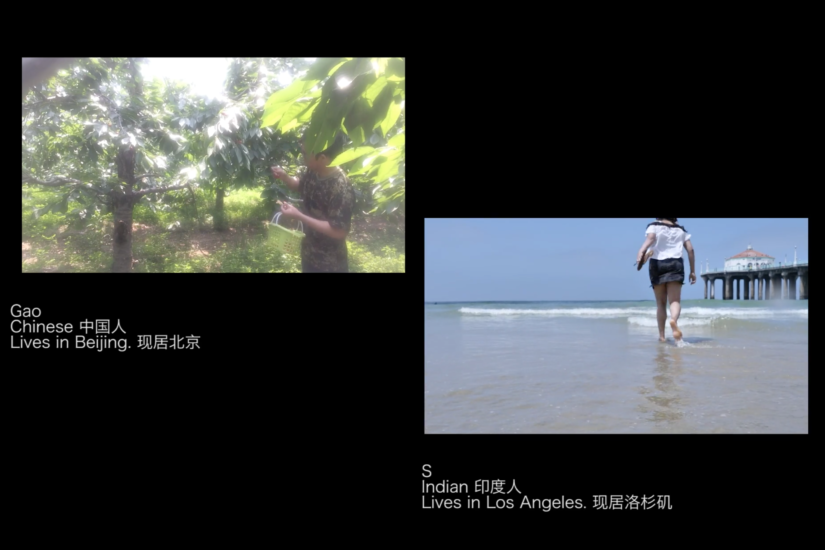
The Global Exchange Workshop documentary short Come, Live, Leave (2019) is the story of two students whose lives are in limbo because of visa issues — Gao in Beijing (left) and S. in Los Angeles (right). The film inspired Professor Pablo Frasconi to proceed with the global filmmaking workshop this summer — connecting students in China and the US via Zoom.
Global Exchange Workshop, A Global Conversation in Film Continues, via Zoom
USC School of Cinematic Arts Professor Pablo Frasconi suggested perhaps the Global Exchange Workshop could go virtual during the Covid-19 pandemic.
In February, as the Covid-19 pandemic tore through parts of China and began to ignite in the US, USC School of Cinematic Arts Professor Pablo Frasconi was concerned the course he has taught for the last six years, the Global Exchange Workshop (CTPR 515), would be cancelled. The filmmaking course was due to take place in Beijing this June, with eight MFA students from USC pairing up with eight peers from Communication University of China (CUC) to create collaborative documentary shorts, together. In the 14 years since it began, the Global Exchange Workshop had only skipped one year. Would this be the second?Then, as film production classes at USC moved online after Spring Break, he realized exactly what graduate students could accomplish while quarantined.
“Some of the work was so extraordinary that a dim light bulb went off,” says Frasconi. Perhaps the Global Exchange Workshop could go virtual.
The light bulb burned brighter as Frasconi revisited a Global Exchange Workshop film, made in 2019, called Come, Live, Leave. It is about two international students stuck in limbo because of visa issues — one in Beijing, the other in Los Angeles. Using techniques such as cross cuts and parallel editing, the filmmakers created a cohesive and moving 10-minute film with separate footage from China and the US.
Frasconi circulated the idea of a virtual course to USC School of Cinematic Arts Dean Elizabeth Daley, to his colleagues at CUC and to Professors Mark Harris and Marsha Kinder, who founded the Workshop. Mr. Stephen O. Lesser, one of the program’s biggest financial supporters, and Clayton Dube, head of the USC US-China Institute and one of the Global Exchange Workshop’s most passionate champions, were also on board.
“If ever there was a year when this was necessary, this is that year,” says Dube.
A powerful dialog
Professors Harris and Kinder founded the Global Exchange Workshop in 2006, ahead of the Beijing Olympics. The goal? To create a productive dialogue between the two cultures, rooted in each country’s premier film and television school, and to enlarge the global perspective of all participants.
Since its inception, the Global Exchange Workshop has done just that.
USC and CUC trade off hosting each year, with the host students typically taking the lead on the ground. Two graduate students — one from each university — are paired up, topics are discussed and decided upon, and then they are thrown into the world to shoot a film together. There are assumptions about creativity and culture to be challenged, debates about what makes for a good story, and how to tell it — all in the matter of weeks.
“They have to find a story, and then find a way to jointly tell that story,” says Dube. “In the process, the level of communication that they develop is much stronger than if they were just sitting in a class, talking about different concepts.”
It is not always easy, but it can be incredibly fruitful.
“From my perspective, this is the ideal US-China exchange,” says Dube. “It’s task focused, it’s small in scope, not taking on global problems. You’re developing the linkages that build trust, that will allow you to do future work together to take on global problems.”
How to make a film during a pandemic
Of course, there’s also the nuts and bolts of collaborative filmmaking from some 6,000 miles apart. The time difference, for one. All 20 students and faculty will come together virtually via Zoom from 6 to 9 pm Pacific Time on Monday nights, which is 9 am to 12 pm Tuesday morning in Beijing. Partner work and independent feedback will happen separately.
Because they cannot access equipment on campus, students will have free access to video and sound editing software, and USC has arranged for students to use an app that turns any smartphone into a video camera. As part of teaching a newly online class this spring, Frasconi has developed workflows, with students shooting, sending dailies, cutting and editing from home.
“Editing remotely is not a big deal,” says Frasconi. “The shooting of it is where all of the details and challenges are going to appear.”
Some things don’t change, however — that, at heart, this is a class about collaboration and working across differences, using the universal language of film.
“It is such a valuable skill,” says Frasconi — and one he believes extends beyond filmmaking. “We’re training human beings that treat each other well and understand and appreciate their differences, or are in awe of their differences.”
Now, more than ever
Communication is at the heart of this whole endeavor — from the communication and collaboration between filmmakers and faculty while making the films, to communicating these ideas out to the world when the films screen.
For Frasconi, the pandemic — our shared quarantine, our shared humanity in the face of the virus — has unique potential. “I think there’s a chance for creativity to change people in a positive way,” he says.
And Dube agrees that now is a fertile time.
“It’s a moment where you’ve got tensions on both sides. Nationalism is on the rise. Suspicions are on the rise.” says Dube. The Global Exchange Workshop is an opportunity for the next generation of filmmakers to come together amidst those differences and focus on what the two countries, two cultures or even just two people have in common.
“We need each other in so many ways,” says Dube. “This program illustrates that.”
